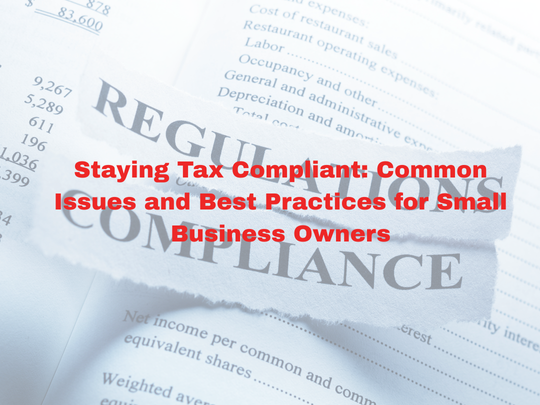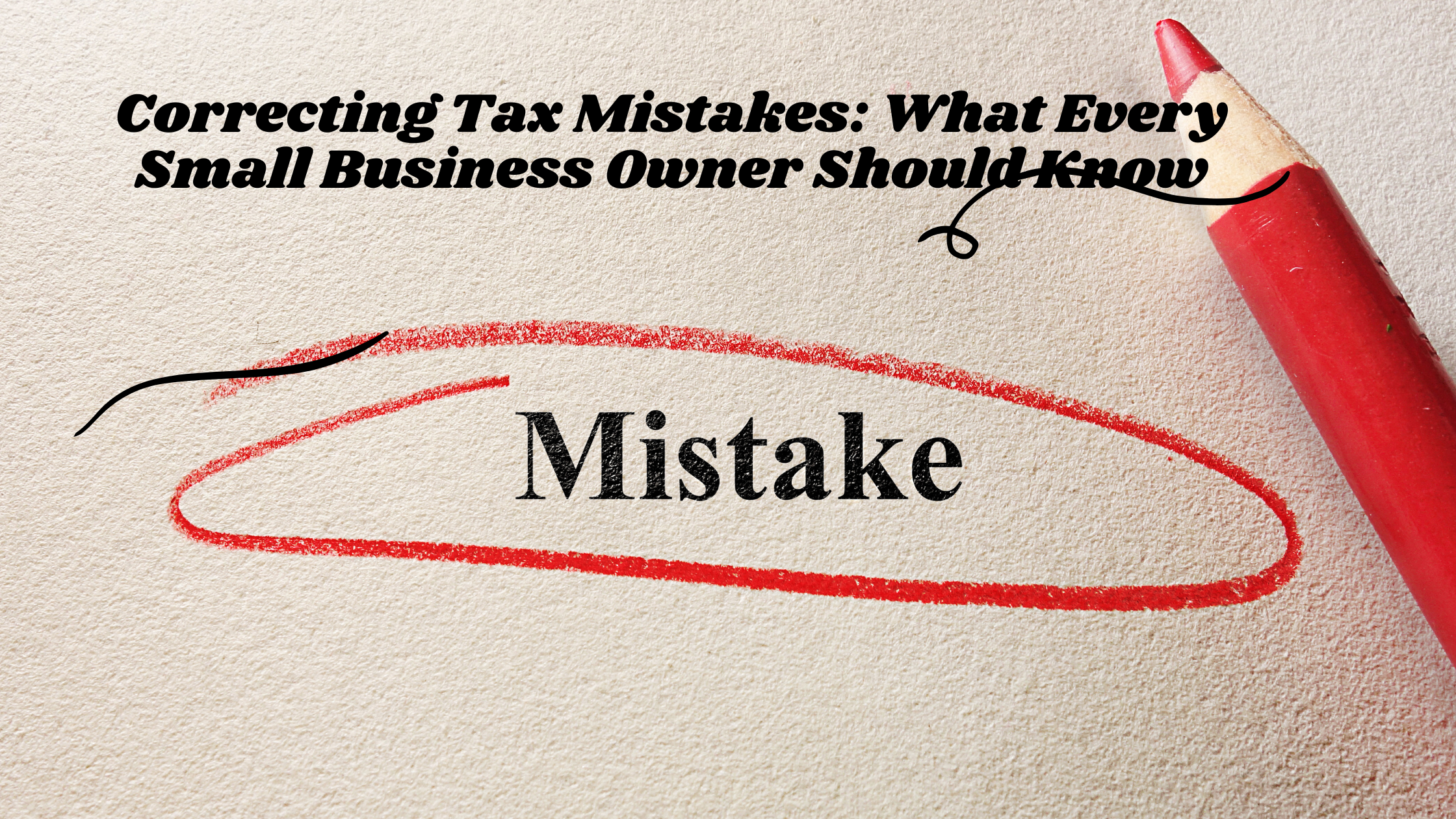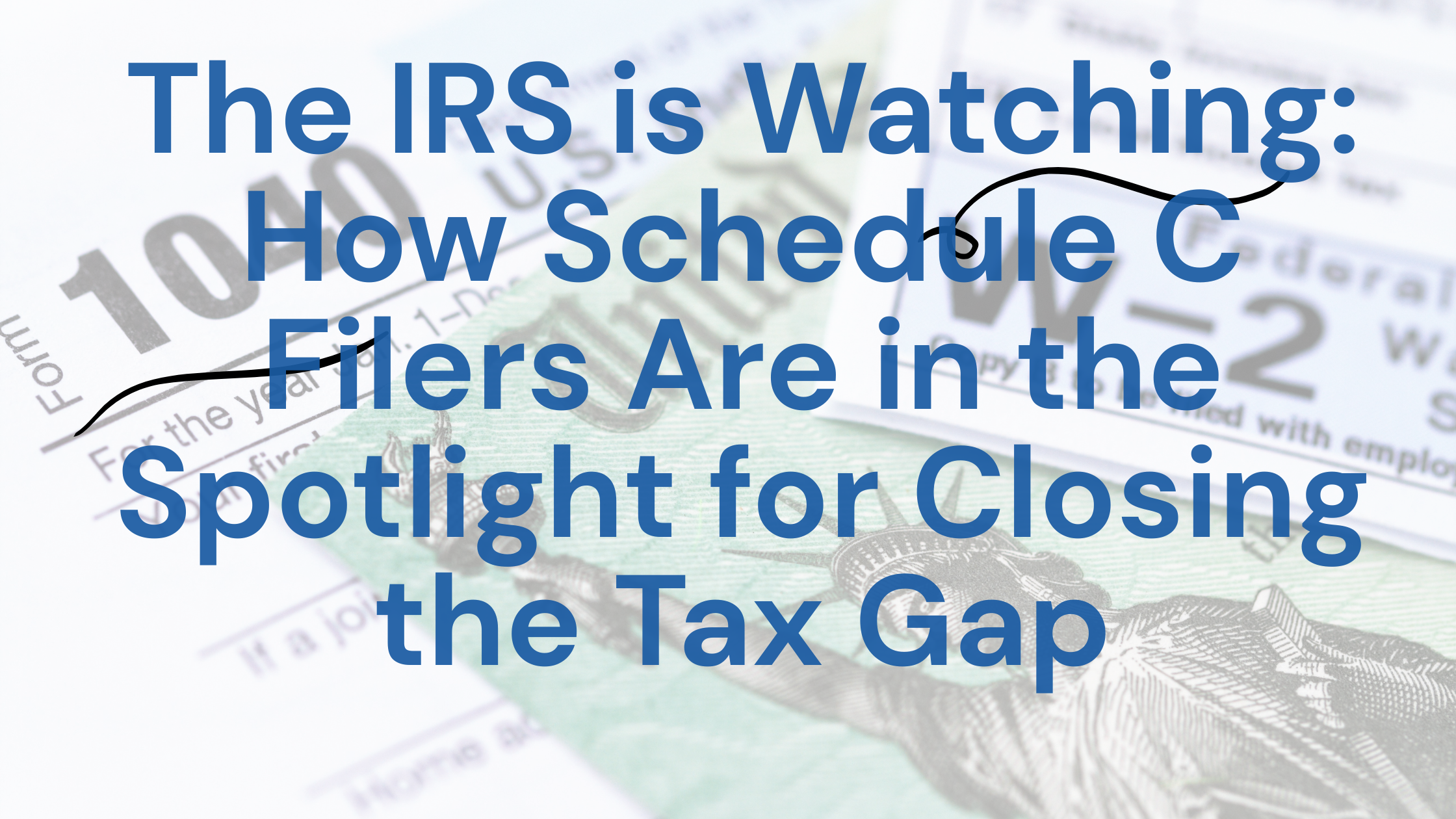If you’re a small business owner who files Schedule C (Profit or Loss from Business) with your tax return, you are part of a group that’s getting increased attention from the IRS—and for good reason.
According to IRS data, Schedule C filers account for $182 billion of the net $625 billion U.S. tax gap—the difference between taxes owed and taxes actually paid. The IRS sees this as an area with significant underreporting, both from missing income and inflated deductions.
Why Schedule C Filers Are on the IRS Radar
Small business owners—especially sole proprietors and single-member LLCs—operate in a voluntary self-reporting tax system. This means you’re responsible for accurately reporting income and expenses. The IRS doesn’t automatically know your full earnings unless they’re reported by third parties, like Form 1099-NEC or Form 1099-K issuers.
Unfortunately, IRS data shows that:
- Underreporting of income and overstating deductions are the biggest culprits.
- Many returns lack proper documentation to support reported numbers.
- Certain deductions—like vehicle expenses, home office deductions, meals and contract labor—are high-risk audit areas.
The Numbers: How Big is the Issue?
From the most recent IRS data:
- 30.9 million tax returns included a Schedule C in 2022.
- They reported over $2 trillion in gross receipts.
- The net income after losses was about $410 billion.
- The largest group of businesses earned $2,500 or less in gross receipts—raising questions about unreported cash income.
- Common large deductions included:
- Car & truck expenses: $142.5 billion
- Contract labor: $113.5 billion
- Home office deduction: $13.5 billion
Common Mistakes That Trigger IRS Scrutiny
- Mixing business and personal expenses – Deducting costs that aren’t 100% business-related.
- Inflated vehicle and home office deductions – Not meeting the “exclusive use” test or keeping inadequate mileage logs.
- Cash income underreporting – Especially in cash-heavy industries like personal services, hospitality, or trades.
- Poor recordkeeping – Invoices, receipts, and proof of business purpose missing.
- Hobby vs. business classification – If your activity doesn’t show a profit in at least 3 of 5 years, the IRS may classify it as a hobby (and deny many deductions).
How the IRS is Closing the Tax Gap
The IRS is investing in:
- Advanced data analytics to spot income discrepancies.
- Expanded Form 1099-K reporting for payment apps and online sales.
- More audits targeting Schedule C filers with high deductions relative to income.
- Industry-specific audit techniques, especially for “cash-intensive” businesses.
What Small Business Owners Should Do Now
- Track every dollar – Keep detailed records of income, whether it comes via cash, check, or electronic payment.
- Separate business and personal finances – Use a dedicated business bank account and credit card.
- Document deductions – Keep receipts, mileage logs, and notes explaining the business purpose.
- Be careful with high-risk deductions – Especially vehicle, meals, travel, and home office.
- Work with a tax professional – An experienced CPA or EA can help ensure compliance and minimize audit risk.
Bottom Line
If you file a Schedule C, you are part of the IRS’s focus group in reducing the tax gap. Accurate reporting and strong recordkeeping are your best defenses—and they also help you understand your business’s true profitability.
The takeaway? Treat your books as seriously as the IRS does. Because if you don’t, they will.
Contact us at admin@fas-accountingsolutions.com to learn more.




